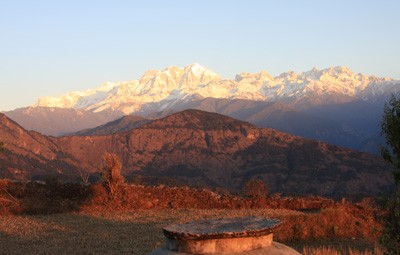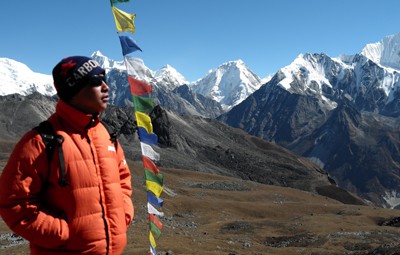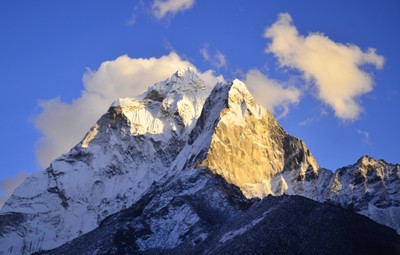So you are thinking to visit Nepal! First of all, do it. Get ready for a trip that some of our guests have described as life-changing. We take pride in our Nepal, one of the most beautiful places in the world. But, some people don't do their research and are shocked by some things that are completely normal in Nepal. We have gathered some of our more popular questions from our guests. We hope this information is helpful to you.
What Are The Top Tips You Should Know Before Heading To Nepal
Table of Contents
What Are The Top Tips You Should Know Before Heading To Nepal
Do I need previous hiking experience to trek in Nepal?
- If you are in a good physical condition, you do not need any hiking or walking experience for short treks. However, but if you want trek longer than a week, some physical fitness programs such as walking, hiking, and normal physical work are recommended before your trek in Nepal. Most treks involve hours of walking on various terrain (with breaks, lunch, and photo stops along the way!). Our guides read our guests and their level of fitness to make sure they have an enjoyable experience.
What kind of travel experience can I expect with Rugged Trails Nepal?
- We believe that traveling in Nepal involves a little bit of the attitude of going with the flow. At Rugged Trails Nepal, we concentrate on creating epic travel experiences by spending countless hours researching and traveling throughout all of our destinations. We have first-hand experienced our treks and tours and get recommendations from our guides of new and interesting places they have explored, giving our clients special experiences. We know from experience which activities, day trips, sports, and cultural sights, etc are the best and we offer our advice and we let you plan your own itinerary at each destination with us. By consulting with your guides once you arrive, you can make your journey. We have been in the travel industry for almost a decade, and we know the different types of travelers that come through Nepal. We believe that it's your trip... and were there with you to create the best experience possible!
Is it possible to hire trekking and climbing equipment in Nepal?
- Yes. There many outdoor gear shops in Thamel, the main tourist area of Kathmandu, as well as in Pokhara and in some towns in the Himalayas. You easily can buy and rent at these shops. We are happy to make arrangements prior to your trip to create a package for you. Many shops sell knockoffs and are quite skilled in sewing the logo of top brands on their products. We know the authentic trekking shops and can steer you in the right direction.
Is it possible for me to communicate back home while I am on a trek and what are the ways that I can do it?
- Nepal is well-connected with phone service, mobile networks, and Wi-Fi service, even the mountains. There may be a small charge for computer or internet use at tea houses at higher elevations, but most accommodations provide free WiFi. SIM cards are available for your unlocked mobile phone, which offers packages for basic call/text and several 3G / 4G network packages. It is easy to buy a cheap simple phone to make calls as well. Is it possible for me to communicate back home while I am on the trek and what are the ways that I can do it
What type of drinking water available on the trek?
- It's always better to carry your water bottle with you on the trek. Mineral water available at a high cost, however, we do not encourage this because Nepal does not have a proper recycling program. Other options are water purification tablets (purchasable in local grocery stores), and/or boiling water.
How much is the weight limits that porters carry?
- Government rules to carry for trekking porters are 25 kilos each and Rugged Trails Nepal follows the rules.
What are the best seasons for trekking in Nepal?
- October to December and March to end May
Which Trek should I choose if I am coming to Nepal in June of July?
- June and July the best choice would be Upper Mustang and Dolpo. If you come on shoulder months, you may be risking poor weather conditions, however, the trails and tea houses are much less crowded.
What is the weather/temperature like in Nepal?
- There are many different weather patterns and climates. The weather may change at any time. It will be cold at night and will be beautiful in the day when the sun comes out. There can be snow or rain storms at any time of the year. Trekking in March April-May, September-October and November is the best time as rhododendron and other flowers blooms and the sky will be clear. During these months during the walking time will be a hot and sunny day. can be a risk between 1000m and 3500m the temperature could be as high as 20 deg C to 5 deg C low. At higher altitude, the temperature ranges from 20 deg C to -10 deg C. During winter it is around 10 deg colder.
What exactly is a tea house trek?
- Teahouse trekking the most common type of trek, with guided hiking and overnight accommodations in a Teahouse in clean, safe rooms of guest houses, lodges, or hotels. In the developed trekking regions such as Annapurna, Everest Base Camp Trekking and Langtang Helambu tea house accommodations are available. Beyond just delicious Nepali tea, other varieties of western foods and as well as Nepalese food (Dal Bhat and momos!) are available. Some have wifi, some have TVs in the common room, some have fire stoves for heat, most have Snickers and Pringles for purchase.
Is the Trekking permit required to trek in Nepal?
- Conservation permits or National park permits are required for trekking regions in Nepal. There are few restricted trekking areas in Nepal, where trekking permits are required. Please visit our web site page that related your trekking regions.
What is altitude sickness and what will happen if I get sick in the mountains?
- Altitude sickness is caused by high elevation. The symptoms like a headache, vomiting, and fatigue are signs of altitude sickness. The most important thing is DONT PANIC. You always ensure that you have well warm clothes. Our guide will have a normal medical kid box service as he/she is trained. Walk high and sleep in low, Drink at least 2 liters of clean water, soups (garlic!), and make small evening hike every day after you get the hotel. In case if you are not well we will provide you with a helicopter evacuation service which will be paid by your insurance company. We recommend limiting caffeine and alcohol, as they dehydrate the body. Also, resist taking naps after your trek because sleeping at nighttime is the best way for your body to adjust to the elevation. Taking it easy, and enjoying the amazing place you are in are great ways to help prevent the symptoms. Just let your guide know about any symptoms that may come, so they can monitor you.
Do I need to get medical shots done before I leave?
- From the most recent information, we have received from health clinics is that people traveling to SE Asia will require shots for Hep A, Hep B, and Typhoid. Some travelers have brought Malaria pills to Nepal, however, it may not be needed. As well, you may need to get some additional boosters such as Tetanus. We're not doctors and do not know more than your local health clinics so please contact a professional and let them know which region of the world you are traveling to and they will ensure you are prepared for your trip with us!
I'm a Westerner what is the toilet situation during the trek?
- In Nepal, as well as many other countries in the world, the locals primarily use squat toilets. In most tourist spots such as restaurants, hotels, and offices, Western-style toilets will be found. However, in tea houses, you made find both or only Squat toilets. Septic systems are not strong in Nepal, and throwing toilet paper in the toilet is not advised. Wastebaskets are usually provided to discard your paper or feminine hygiene products. Remember to carry toilet tissue or napkins with you, or just learn to go like a local!
What about showers while trekking?
- Some tea houses provide either hot or cold shower, and in high elevations, bucket showers are the only option. Hot showers are usually solar-powered. Bucket showers are typical with hot boiled water and may cost an additional charge for gas usage. Bringing baby wipes, wet wipes, or baby powder (for body and hair!) is useful during your trek.
What is Load Shedding?
- Load shedding is basically long-periods of power outages that vary depending on the time of year. Most hotels have generators, and kitchens are gas-powered, so tourists generally are not much impacted by load shedding. However, television and power outlets will not work, so we advise to bring a small backup portable charger for your electronic devices. Ask the locals about the politics of Nepal to get more information on why this happens. The locals are so used to it by now, they have made Load Shedding Apps that give a schedule of when the power will go out around Nepal. Now no More Load Shedding in Nepal!!!
I am thinking to trek alone why should I book the trek with a company?
- Do not trek alone. There have been numerous disappearances of solo trekkers in recent years. This applies to everyone but especially women that are traveling single they seem to more vulnerable. Guides can ensure that you always get a bed to sleep on, you're your meals are on time, that the cooks know you are gluten-free or give you fascinating cultural information along the way. Our guides provide you with a friendly company along the way, but you also have plenty of opportunities to socialize with other trekkers and locals.
Should I spend some time in Kathmandu before or after my trek?
- Kathmandu is one of the most polluted cities in Asia and can be overwhelming for some of our guests. The streets are busy, crowded, and dusty. Despite this, Kathmandu is full of beautiful temples, monasteries, meditation centers, and yoga ashrams. It seems like every other day there is a cultural festival occurring. We also offer various volunteer opportunities both in and outside the Kathmandu valley, which is a nice way to give back to the locals and immerse yourself in Nepali culture.
How many days should I allow for before and after my trek?
- This is hard to determine, but we recommend booking your arrival and departure flight keeping in mind that weather conditions, the occasional Bandhs (Strikes where no transportation is allowed), or other unforeseeable events that may impact your travel date. Especially for those flying into Lukla to the Everest region, weather can be a big issue and delay flights for days. We will accommodate our guests as best as possible if this occurs (change of trekking location, hiring a helicopter at an additional charge, alter the itinerary, etc). Nepal is full of endless opportunities and we are more than happy to arrange day trips, taxi service, or make suggestions of things to do or see.



